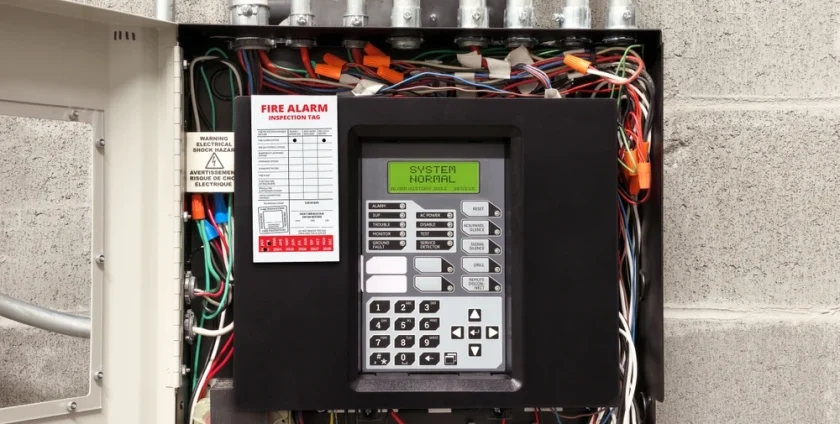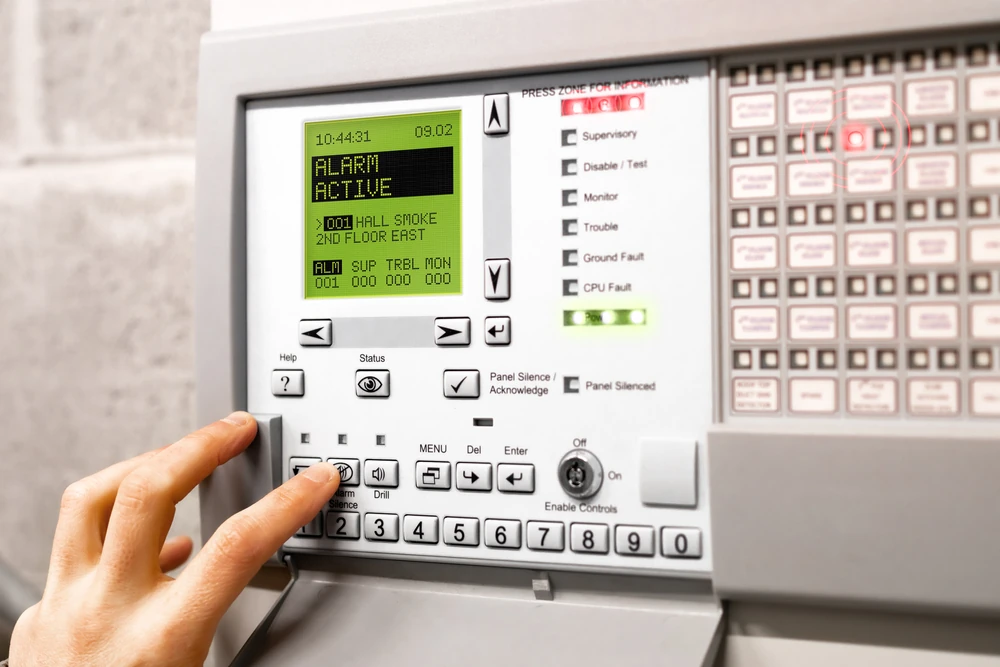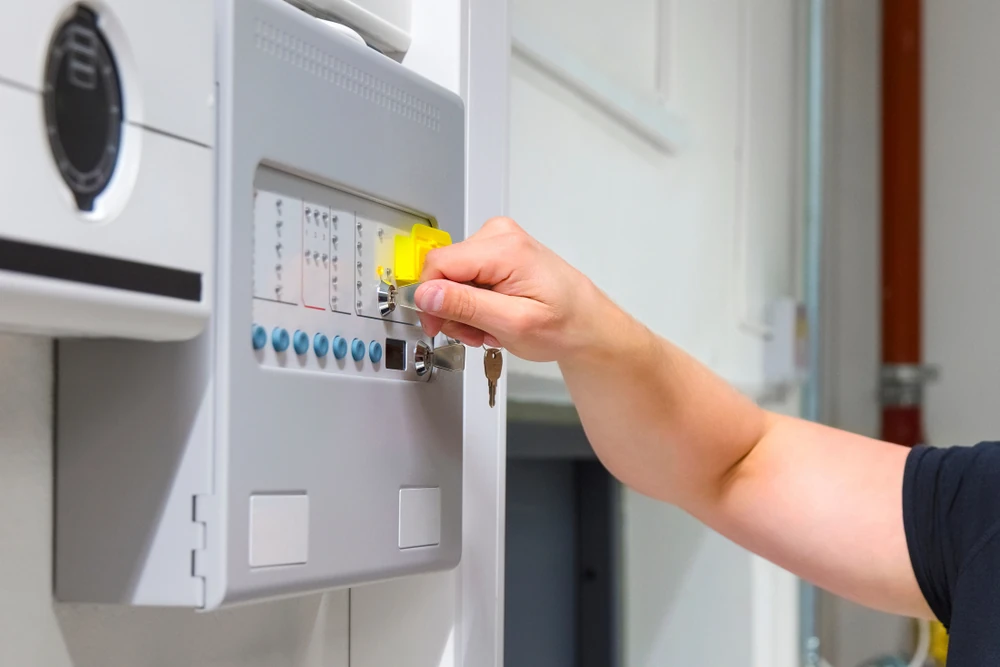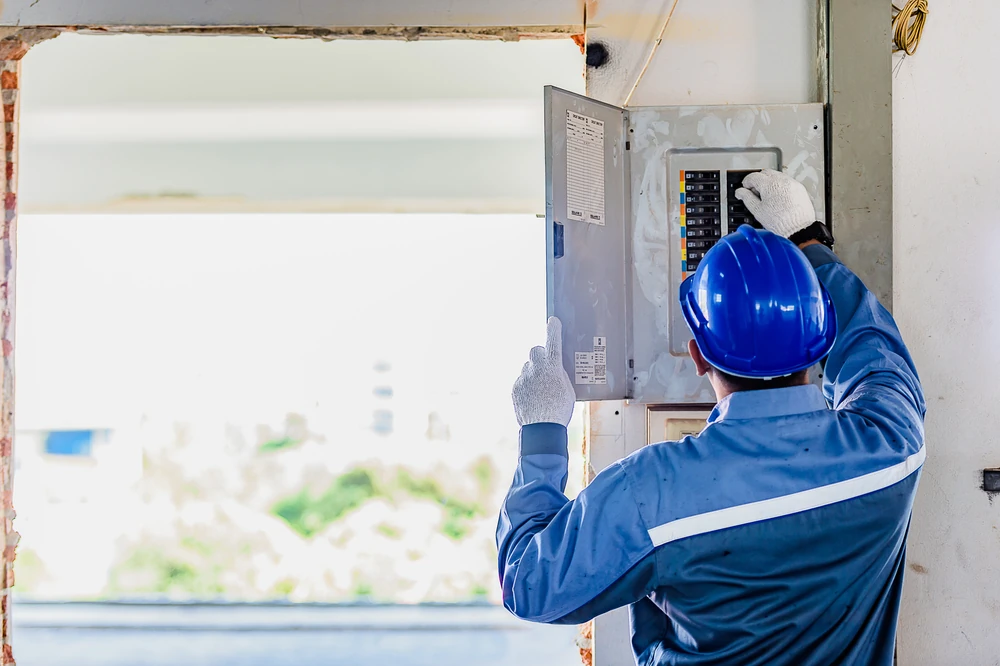
A fire alarm panel, also known as a Fire Alarm Control Unit (FACU), is the central component of a building’s fire alarm system. It monitors various fire detection devices, processes signals from sensors, and initiates alarms to alert occupants and emergency services of potential fire hazards. Fire alarm panels play a critical role in ensuring building fire protection systems are effective, enhancing overall safety and compliance with fire safety regulations.
Types of Fire Alarm Panels

1. Conventional Fire Alarm Panel
A conventional fire alarm panel divides the building into different zones. Each zone represents a specific area with multiple smoke detectors or manual call points. When an alarm is triggered, the panel indicates the affected zone, allowing first responders to quickly identify the general location of the fire. These panels are cost-effective for small buildings or residential properties.
Advantages:
- Simple and reliable
- Cost-effective for smaller buildings
Limitations:
- Lack of precise location detection
- Limited scalability
2. Addressable Fire Alarm System
An addressable fire alarm system provides more detailed information compared to a conventional panel. Each device connected to the system has a unique address, allowing the fire alarm control unit to pinpoint the exact location of a triggered sensor. This precision is invaluable for large commercial buildings or complex infrastructures.
Benefits:
- Accurate location of fire
- Enhanced monitoring and diagnostics
- Flexible and scalable for various building sizes
3. Wireless Fire Alarm Panel
Wireless fire alarm panels use radio signals to communicate with sensors and alarms throughout the building. These systems are ideal for buildings where wiring is impractical or for retrofitting older structures.
Key Features:
- Easy installation
- Minimal disruption to existing structures
- Cost-effective in complex layouts
How Fire Alarm Panels Work?
Fire alarm panels continuously monitor inputs from various fire detection devices such as smoke detectors, heat detectors, and manual call points. When a device detects smoke or heat, it sends a signal to the panel, which processes the data and triggers the necessary response.

Primary Functions:
- Monitoring: Constantly checks the status of connected devices.
- Notification: Activates alarms (sounders, strobes) and alerts occupants.
- Communication: Connects with alarm monitoring services to notify emergency responders.
- Control: Manages fire suppression devices like sprinklers and emergency lighting.
Components of a Fire Alarm Panel
- Control Unit: The brain of the system, responsible for processing signals and managing responses.
- Display Panel: Shows system status, including any faults or alarms.
- Power Supply: Ensures the panel remains operational during power outages.
- Zones or Addresses: Depending on the system type, indicates the location of fire detection.
- Input Devices: Smoke detectors, heat detectors, manual call points.
- Output Devices: Sirens, strobes, and communication modules for remote monitoring.
Fire Alarm Panel Installation
Proper fire alarm panel installation is crucial for ensuring effective building fire protection systems. It involves:

- Conducting a risk assessment to determine the right type of panel.
- Strategically placing sensors for optimal coverage.
- Ensuring compliance with local fire safety regulations.
Z3 Corporation offers comprehensive fire alarm panel installation services, ensuring your building is equipped with a reliable and compliant fire safety solution.
Fire Alarm Panel Troubleshooting
Regular maintenance and prompt troubleshooting are essential for fire alarm panels. Common issues include:
- False alarms due to sensor faults or environmental factors.
- Communication errors between the panel and sensors.
- Power supply issues.
Addressing these problems promptly ensures the system remains fully functional and reliable. Z3 Corporation provides expert troubleshooting services to maintain optimal performance.
Integration with Fire Suppression Devices
Fire alarm panels can integrate with fire suppression devices like sprinklers and extinguishing systems. In advanced setups, the panel can automatically activate fire suppression measures upon detecting a fire, providing a faster and more effective response.
The Role of Fire Alarm Panels in Smoke Detection and Warning
Fire alarm panels are integral to smoke detection and warning systems. They process data from smoke detectors and alert occupants through audible and visual alarms, facilitating quick evacuation and response.
Compliance with Fire Safety Regulations
Fire alarm panels must comply with fire safety regulations to ensure proper functionality and reliability. These regulations outline requirements for:
- Installation standards
- Maintenance schedules
- Testing procedures
Compliance ensures not only the safety of occupants but also avoids legal penalties. Z3 Corporation ensures all installations meet national and international fire safety standards.
The Importance of Alarm Monitoring Services
Alarm monitoring services provide 24/7 surveillance of your fire alarm system. In the event of an alarm, the service can quickly notify emergency responders, minimizing response times and potential damage.
Conclusion
A fire alarm panel is a vital component of any building’s fire safety system. Whether you need a conventional, addressable, or wireless system, understanding how fire alarm panels work and their role in smoke detection, alarm monitoring, and integration with fire suppression devices is crucial. For expert installation and maintenance services, contact Z3 Corporation today and ensure your building is protected against fire risks.
- By:Z3 Corporation
- 0 comment

Leave a Reply